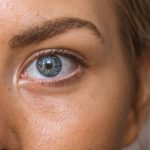Five Practical Tips for Healthy Eyes From Top Eye Care Associates
The eye care associates at Piedmont Eye Care want everyone to enjoy a lifetime of vision health.
Your eye health is connected with your overall well-being, so you may notice that some of these tips have broader health implications. Living an eye-healthy lifestyle requires a holistic approach including professional care, safety awareness, hygiene, and a generally healthy lifestyle. We hope these five practical tips to healthy vision will help keep you and your family stay healthy.
-
Be Aware of Any Hereditary and Lifestyle Risk Factors
Most health conditions involve a complicated mix of lifestyle and hereditary risk factors. While you can’t prevent the hereditary factors, you do have the ability to decrease the lifestyle risk factors. For example, smoking is a lifestyle factor associated with an increased risk for a variety of health issues including age-related macular degeneration.
Once you identify your hereditary and lifestyle risks be sure to discuss them with all of your health care professionals including any eye care associates like your optometrist. Awareness of these risks may help your doctor choose the right screening tests for your level of risk. Early diagnosis leads to early treatment which increases your odds of maintaining healthy eyes as well as a healthy body.
-
Protect Your Eyes From Damaging Ultraviolet Light
Excessive sun exposure leads to premature aging of your skin and your eyes. Luckily, you don’t have to give up enjoying time outside. Fresh air and outdoor activity is good for your mental and physical health. Just be sure to protect your eyes from harmful UV rays by wearing sunglasses and brimmed hats or visors while outside. Choose sunglasses that offer protection from both UV-A and UV-B just like you would protect your skin with a broad spectrum sunscreen. Not all sunglasses are equal, so be sure to speak with your eye care associate if you are not sure which sunglasses to purchase. If you wear corrective lenses already, consider wearing lenses that offer UV protection since that is one less thing to think about.
Finally, sometimes small sunglasses look chic however they don’t provide as much sun protection as larger sunglasses. If you prefer sunglasses with smaller lenses, consider doubling up on your protection by wearing a brimmed hat or visor to shade your eyes.
-
Give Your Eyes A Break From Eyestrain
If you are like many people, you spend hours each day staring at computer monitors or cellphone screens. These illuminated screens may lead to eyestrain. Similarly, if you are an avid reader, artist, or maker you may spend hours staring at small details and this too leads to eyestrain.
Whenever you spend time reading, writing, or focusing on detail-oriented tasks, be kind to your eyes and give them frequent breaks. On practical rule of thumb is to practice the 20-20-20 rule.
- Take a break every twenty minutes and look away from your screen or project,
- Focus on an object at least 20 feetaway. This helps relax the muscles that you use when focusing up close.
- Do this for at least 20 seconds before returning to your work or your project.
- Practice Eye Safety
Your eyes are delicate so be sure to protect them from any flying debris. If you engage in certain sports, woodworking, scientific experiments, yard work, or other activities your eyes may be at risk. Some examples include playing racket ball, using a leaf blower, mowing the lawn, or sanding wood.
Prescription safety goggles are available if you need corrective lenses. Consider it an investment in the safety and health of your eyes. Discuss your activities with your eye care associates for advice. Please wear protective eyewear or safety goggles whenever you participate in any activity that could result in something flying or splashing into your eyes.
Also, eye safety relates to hygiene especially if you wear contact lenses. Be sure to follow your optometrist’s advice when inserting, removing, handling or cleaning contact lenses. Doing this prevents unnecessary infection. Replace your cleaning solution, lenses, and lens cases as recommended. This helps prevent the buildup of harmful bacteria.
Finally, we have one more tip for makeup users. If you wear cosmetics like eyeliner and mascara, but sure to replace them regularly. Some thrifty fashionistas will use the same tube of mascara until it runs out. This isn’t the time for thrift, be sure to replace your mascara every two or three months to minimize the risk of bacteria buildup. After all, replacing a tube of mascara or eyeliner is less expensive than treating an eye infection.
-
Live an Eye Healthy Lifestyle
As it happens, an eye-healthy lifestyle is a healthy lifestyle. Sleep, adequate physical activity, and a healthy diet are just as important to your eyes as they are to your body and mind.
Since your eyes have unique nutritional needs, our eye care associates shared a few practical suggestions to ensure your eyes get the nutrients they need.
- Vitamin A or beta carotene -when you were a child someone may have told you to eat your carrots. If so, they were not wrong. Your eyes need beta carotene. You can find it in carrots, sweet potatoes, and other naturally orange-colored vegetables.
- Luteinis another nutrient that helps keep your eyes healthy. You can find it in leafy green vegetables like kale, Swiss Chard, and spinach. Orange bell peppers are another good source of lutein.
- Omega-3 fatty acids help prevent dry eye and possibly computer (and device) related eye strain. Some sources of Omega-3sinclude walnuts, chiaseeds, tofu, and fatty fish like salmon and mackerel.
- Food that helps regulate your blood sugar, blood pressure, weight, and cholesterol. Chances are your general practitioner already discussed healthy nutrition with you. The same foods that help control conditions like high blood sugar also help preserve your eye health. Conditions like obesity, diabetes, and high blood pressure are all vision health risks.
- Consider supplements if you find it difficult to eat enough foods that supply these nutrients.
In addition to diet, maintaining an active lifestyle helps your eyes as well as your physical and mental health. One theory is that in addition to controlling weight, daily activity boosts circulation. Your eyes consume a lot of oxygen so healthy circulation benefits your vision. The Center for Disease Control suggests that adults should get at least 2 and a half hours of moderate activity each week. An hour a day is even better since health benefits increase after 5 hours of weekly moderate activity.
Sometimes people overlook the importance of sleep. Getting enough sleep helps your eye health in a few ways. For example, adequate sleep helps prevent dry eye which is a common cause of discomfort. Eye strain and twitching are also conditions that sleep helps prevent. Most importantly, your body repairs during sleep so a lack of sleep compromises all aspects of your health.
Consult Out Eye Care Associates Today
In addition to these tips, professional eye care is essential to a lifetime of healthy vision. Be sure to regularly visit your eye care associates for a comprehensive eye exam, preventative care, and treatment for any new or existing conditions. Talk with your optometrist about your lifestyle so you can receive the best information about how to live a vision-healthy life.
If you haven’t had an eye exam this year, be sure to schedule one. Charlotte residents trust their vision to Piedmont Eye Care. If you live in the Charlotte area, call us today to schedule your comprehensive eye exam.





